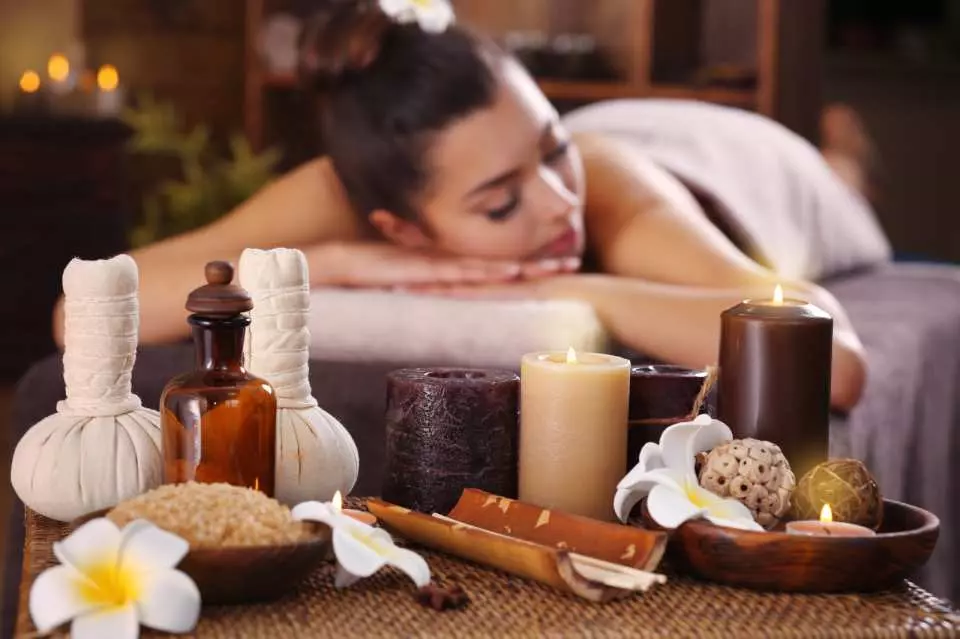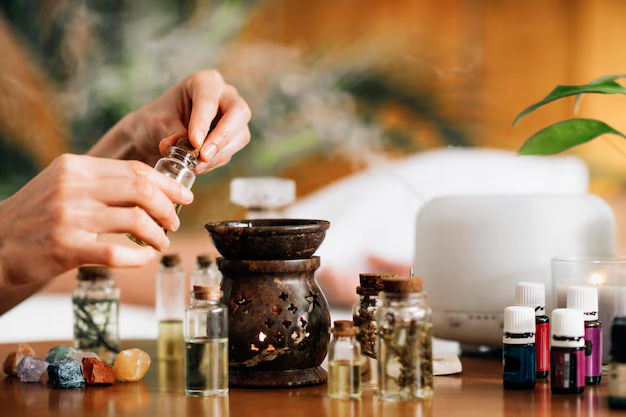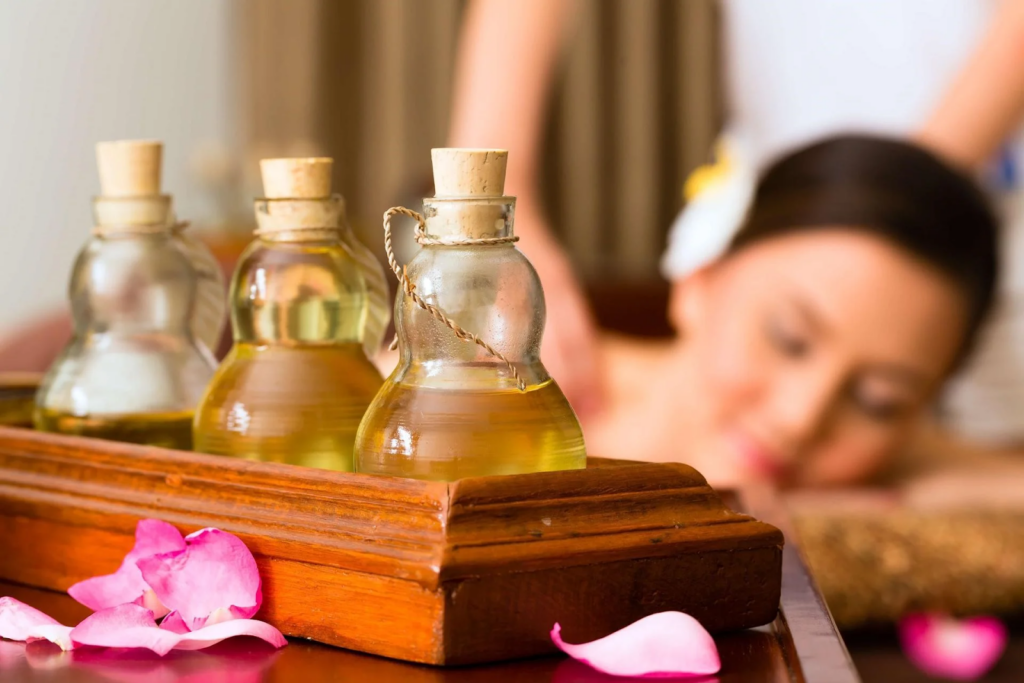
Aromatherapy restfulness from lavender, energy boost from peppermint, relaxation in a bottle (or diffuser). Pause for a moment! There are several things you should think about before starting that collection of essential oils. While it can greatly improve your well-being, aromatherapy does not work the same for everyone. Therefore, let us begin and make sure you have a safe and fun journey into the world of fragrances!
Are there any medical conditions that contraindicate aromatherapy?
Yes, people with epilepsy, asthma, or severe allergies should exercise caution with aromatherapy. Certain oils may trigger seizures, respiratory issues, or allergic reactions.
Consulting a health professional is recommended before use. Aromatherapists can offer safe practice guidelines and suitable alternatives for these conditions. Some essential oils, like eucalyptus or rosemary, may include elements that can provoke seizures in people suffering from epilepsy.
For people with asthma, strong smells can provoke breathing difficulties. Some oils, when applied to the skin, can provoke irritations or aggravate allergic reactions in cases of serious allergies. Consulting a doctor or an experienced aromatherapist ensures appropriate and safe application of aromatherapy techniques, targeting individual health conditions and avoiding potential dangers.
Is aromatherapy safe during pregnancy?
Aromatherapy during pregnancy is safe. However, pregnant women should avoid certain essential oils like rosemary, clary sage, and juniper, which may stimulate contractions or affect hormone levels.
It is always best to consult your health provider prior to taking up any kind of therapy. Safe alternatives may be offered by a healthcare professional, and proper dilution can minimize the risk factors for lovely relaxation without side effects. Hormonal changes during pregnancy heighten the body’s sensitivity to some compounds found in oils.
Some, like rosemary, may stimulate uterine contractions and increase the risk of miscarriage, especially in the first trimester. By contrast, some oils, like lavender or chamomile, could be safely used to cause relaxation and mitigate stress if properly advised.
Consulting health providers on the proper choice and usage of these oils can help extract their benefits while minimizing associated risks. Tailored advice is essential to navigate the complexities of aromatherapy during pregnancy.

Is Aromatherapy Safe for Children?
Aromatherapy can be safe for children with appropriate precautions. Diluted essential oils like lavender or chamomile are generally safe. However, some oils can irritate the skin or respiratory system.
Children can use aromatherapy safely by consulting a pediatrician and using child-friendly products that are formulated with children’s sensitivities taken into consideration. Children have very sensitive skin and young, developing respiratory systems that call for heedful applications of essential oils. The proper dilution ratio for children is usually more reduced compared with adults, in order not to irritate.
Oils good for adults, such as peppermint and eucalyptus, can both create respiratory problems in young children. Child-friendly diffusers and products designed for pediatrics are safe for their use. Parents should always check with a doctor or a professional aromatherapist about the oil and techniques that are going to be used to provide peace of mind in using aromatherapy on children and effective treatments.
Should people with allergies avoid aromatherapy?
People with allergies should approach aromatherapy cautiously, as some oils may trigger reactions. Patch testing on a small skin area before use can help identify sensitivities. Consulting an allergist or aromatherapist can guide safe oil selection, reducing the risk of adverse reactions.
Essential oils have volatile compounds that may increase allergies. Those with known sensitivities should perform a patch test. It means that a small amount of diluted oil is applied onto the skin and observed for a period of 24 hours for any reactions. Some oils, especially citrus or even tea tree, can be quite irritating or cause allergy.
Consulting a health professional can help in ensuring people with allergies may also have fun safely by identifying the kind of oils which do not irritate their skin, then the mode of applications. Customized advice is given in order to avoid ill effects and benefit greatly from aroma.

Are there risks of aromatherapy for people with sensitive skin?
Individuals with sensitive skin may experience irritation from essential oils, especially if undiluted. Using a carrier oil and testing on a small area can prevent adverse reactions. Choosing oils known for gentle properties, like lavender or chamomile, can minimize irritation risks for sensitive skin.
Sensitive skin is prone to reactions, so diluting essential oils with a carrier oil is essential. Carrier oils like coconut or jojoba oil help reduce the concentration of essential oils, minimizing irritation. Patch testing before the full application can identify any adverse effects.
Essential oils with known soothing properties, such as chamomile or sandalwood, are often recommended for sensitive skin. Consulting with aromatherapists or dermatologists ensures proper oil selection and application, promoting safe and effective aromatherapy practices for those with delicate skin.
Can aromatherapy affect people with respiratory issues?
People with respiratory issues, such as asthma, should use aromatherapy cautiously. Inhaling certain essential oils may aggravate symptoms. Consulting a healthcare provider and avoiding strong oils like eucalyptus or peppermint can prevent respiratory irritation, ensuring safe aromatherapy use.
The pungent smell of some oils may trigger respiratory problems or asthma attacks. Eucalyptus and peppermint are decongestants, but they can really inflame sensitive passages in the airways. Such methods include the use of milder oils and direct inhalation.
The healthcare professional may also offer advice on special precautions appropriate to the exact nature of the respiratory condition. Awareness of potential specific adverse reactions and adjustment of the application of the oils will ensure a safe and effective application of aromatherapy in clients with any form of respiratory disorder.
Are there any risks of aromatherapy for pets?
Aromatherapy can be harmful to pets, as animals are more sensitive to essential oils. Some oils, like tea tree and citrus, are toxic to pets. Using pet-safe oils in a well-ventilated area and consulting a veterinarian ensures their safety and well-being.
On the issue of metabolism, ASPCA (American Society for the Prevention of Cruelty to Animals) states that pets metabolize essential oils much differently than humans do. They, therefore, have an increased potential for the development of toxicity. Cats especially lack liver enzymes necessary for processing specific compounds existing in essential oils.
Oils like tea tree or citrus can induce vomiting, lethargy, or respiratory distress. Prior to using aromatherapy with pets, make sure to consult a veterinarian. Proper use of pet-safe oils, diffusion in well-ventilated areas, and limited application are risks one can take towards a safe coexistence between aromatherapy and pet health.
Practice Safe Aromatherapy
Aromatherapy can do wonders for you! But not everybody feels the same way; if there are underlying health conditions, pregnancy or young children involved consult a healthcare professional first. Safety should always come first, dilute properly according to instructions from reputable brands and begin with small amounts until you know how it affects you personally. Follow those rules so that aromatherapy benefits can be enjoyed without worry.

